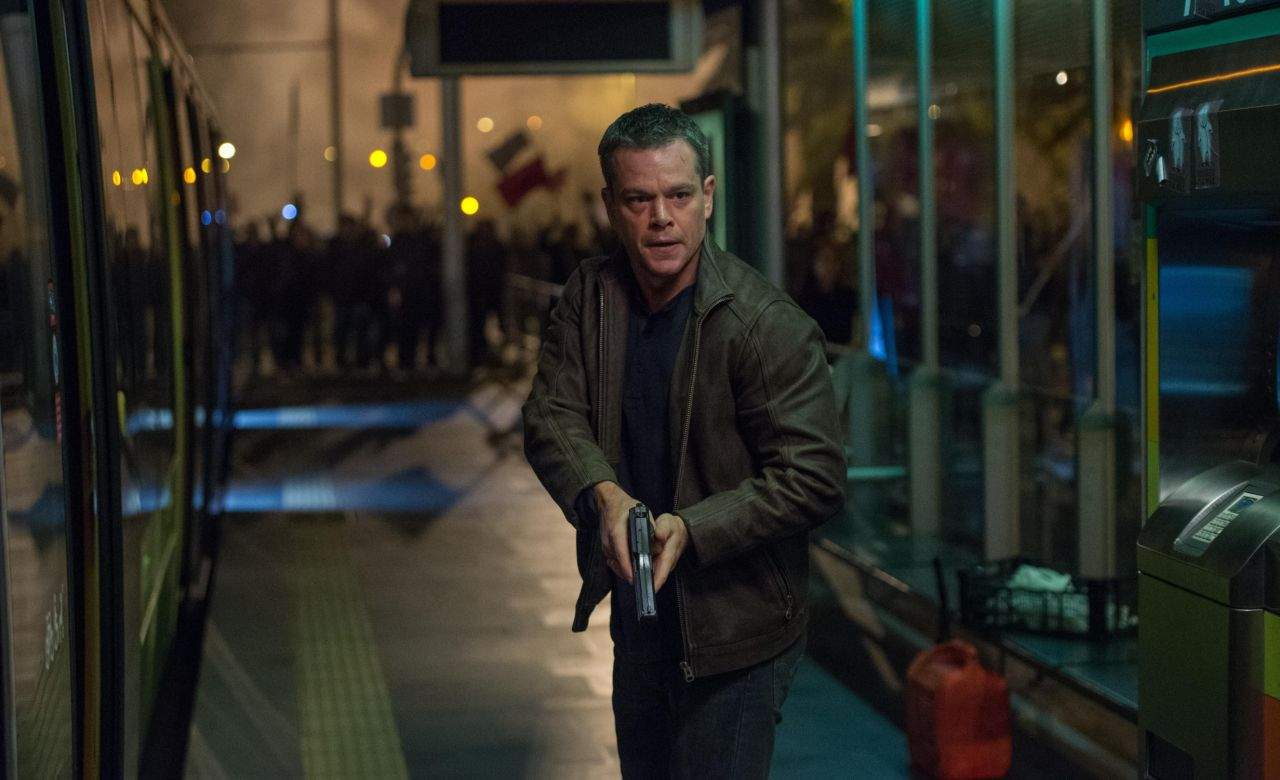Jason Bourne
The most conventional Bourne film yet.
Overview
Strange as it may seem, the difference between a good action movie and a great one isn't actually the action. It's the story. You can have the greatest action sequences of all time, but without a compelling story to back them up they'll end up falling flat, and viewers will struggle to care about why their hero is enduring it all.
This characteristic was key to the success of the first Bourne trilogy, which chronicled the relentless attempts of Matt Damon's protagonist to pierce the veil of his amnesia and discover the truth about his past. Less so the follow up, The Bourne Legacy, which again contained outstanding action, but struggled in the later stages when the hero's sole motivation was tracking down medication to keep him functioning as a super soldier. The stakes were lessened, and – as a consequence – so too the audience's regard.
As the name suggests, Jason Bourne returns the focus to the heart of this franchise, picking up the story with Matt Damon's character now limping through life in Athens as a bare-knuckle fighter in an illegal gambling ring. When an old face resurfaces and provides him with hacked CIA documents suggesting his past mightn't be as clear-cut as he previously thought, he's forced to resume a cat-and-mouse game with his former employers as they try to kill him, and he tries to find out what they did to him during his recruitment. In that sense, Jason Bourne is back on familiar ground. But with deception supplanting amnesia as the obstacle to his clarity, it's something of a Jason Bourne movie without quite the same level of Jason Bourne magic.
As always, the villains – in the form of the CIA and their ominously named 'assets' – spend the bulk of their time in darkened surveillance rooms, delivering almost comically jargon-heavy dialogue with unblinking, stone-cold faces. This time round the team is led by Tommy Lee-Jones as CIA Director Robert Dewey, and Alicia Vikander as his ruthless senior analyst Heather Lee. If nothing else, Jason Bourne is a terrifying insight into the technological capabilities now available to the world's top spy agencies, able to surveil the faces of thousands of people instantly and simultaneously within a riot, remotely shut down the power of a building in Reykjavik, and delete the files off a computer via a mobile phone in the same apartment. The emphasis on technology, however, pulls focus away from the man at the heart of the story, and the movie feels slightly hollow because of it.
Director Paul Greengrass's preference for minimal dialogue and frenetic, shaky cinematography is well known. In this film he constantly pushes the limits of continuity, resulting in the need for clumsily inserted markers just to keep the audience up to speed. Maps are helpfully labelled "SEWER SYSTEM" in giant letters, every text message is sent in all-caps, and when Bourne nabs several items from a tech convention, they're beneath signs saying "Remote Surveillance Camera" and "Wireless Tracking Device". It's an unfortunate dumbing down of a traditionally intelligent franchise, feeling almost as though the script notes for the props department somehow ended up on screen.
Even the action, whilst constant and thrilling, lacks some of the Magyver-esque charm of the earlier films, in which Bourne improvised lethal weapons out of everyday items like biro pens and rolled up newspapers. In a word, it's all very conventional, taking the franchise out of its genre-defining position and dropping it squarely back into the middle of the pack.





